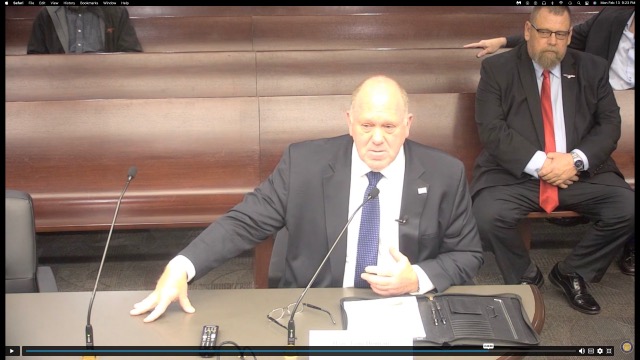
The below video and transcript is from a hearing in the Senate Committee on Interstate Cooperation at the Georgia Capitol on Friday, February 10, 2023. The hearing was three hours long. This segment is the testimony of former Acting ICE Director, Tom Homan who was the final witness of the day.
Senate Media Release here.
Liberal Atlanta Journal Constitution coverage here.
Access to video here See “2-10-23” and go to 239:26 on the slide/counter
Transcript by Rev.com. My cost: $68.00 and about three hours.
_____
Sen. Colton Moore, Chairman:
Yeah. Um, the, uh- the next person we’re gonna have, this’ll be the last person in this line of testimony, is Mister Tom Homan, uh, the former Immigration and Customs Enforcement Director.
Mr. Homan, we give you, uh, our sincere Georgia apologies for the delay today in our schedule.
Director Tom Homan:
So, I appreciate the invite. Um, after I make my remarks, I just wanna go over a few data points specific to Georgia that we have researched. I want to show them with you, uh, and take an extra f- couple minutes.
So, let’s- uh, uh, let’s look at borders as- as what is going on. First of all, where I come from, I was a cop in New York, joined the Border Patrol in 1984. I’ve been enforcing immigration law for 35 years. I was the first director that came up through the ranks. I was nominated by President Trump. I’ve worked for six presidents, starting with Ronald Reagan. Every president I worked for cared about s- border security. They all, they all campaigned on it. They all took steps to secure the border ’cause they recognized you can’t have national security without border security. Even President Obama, President Clinton, took steps to secure the border.
Matter of fact, under President Obama in FY12, I was the third in command of ICE. We removed a record number of illegal aliens, 409,000. No one did more than President Trump to secure the border. Illegal immigration was down 83%, a 45-year low. The data’s clear. It’s not my opinion. Anybody go to CBP website and look at the data. 83% decline, 45-year low.
President Biden’s the first president in the history of this nation who came into office and unsecured the border. That’s just a fact. I mean, when you- when- when you- when you promise you’re gonna put a moratorium on deportations, when you promise they won’t be detained, when you promise they can get work authorization, when you promise you can get free healthcare, when you promise that I’m gonna give you amnesty, when you make those type of promises, the most vulnerable people in the world are gonna make this trip to come to the greatest country on earth, and many of them will put themselves in the arms of criminal cartels who will abuse them.
So regardless of what anybody’s … I’m an immigration enforcement guy, but regardless of anybody’s opinion on immigration enforcement, good, bad, indifferent, what this administration has done has caused such a crisis, such large numbers. We went from 83 … 45-year low to historic numbers crossing the border we’ve never seen in the history of this nation. When you do that to the Border Patrol, it overwhelms them to the point that many sectors, up to 70 to 80%, that’s right, 70 to 80% of agents are pulled from the line, patrol, to process these big groups.
They’re criminal cartels, as you heard previously from Jason. They’ll push a group of 200 families to one area, knowing that whatever’s left on the border, which is very few of them, will seize to that area to deal with that humanitarian crisis, ’cause a lot of people are in bad shape and they need immediate medical care. The cartels create gaps.
So when you overwhelm the Border Patrol, 80% [inaudible 00:03:11], remember there’s 15,000 Haitians under the bridge, they pulled every agent from that sector in to deal with that. There was 204 miles of border unguarded for days. Cartels know exactly what they’re doing.
So when you create such a huge crisis like that, humanitarian crisis, what that causes is the border be vulnerable to drug crossing the border, criminals crossing the border, and also threat to terrorist, it’s a huge vulnerability, and let me- let … I don’t wanna understate that. Border patrol’s arrested 151 people from- that are o- who’re on the terrorist watch list, known, suspected terrorists. 151 since Joe Biden’s been in office. Border Patrol’s arrested people from 171 different countries. Many of these countries are sponsors of terrorism. There’s 1.2 million recorded got-aways, 1.2 million. If you don’t think a single one of that 1.2 million came from a country that sponsors terrorism, you’re ignoring the data. It’s just- it’s- it’s a real percentage.
So what this administration does has created not only humanitarian crisis, they created a public safety crisis. Border Patrol’s arrested over 70,000 convicted criminals. That’s who they arrested. Over 100 of them convicted of homicide. 71,000 criminals. 151 known suspected terrorists. And here’s [inaudible 00:04:29] 1.2 million got-aways. You heard it before. Why wouldn’t they turn themselves into Border Patrol, be processed, get a free airline ticket to the city of their choice, apply for work authorization, spend a couple years fighting their case, why would you not take advantage of that give-away program? Why did you choose to pay the cartels extra money to get away?
This is simple. They don’t wanna be vetted. They don’t wanna be fingerprinted. I’m not saying every one of them a criminal, but there’s a reason they tried to escape and ma- and 1.2 million did. That should scare the hell outta everybody. It does me.
So this is what we’re presented with today, and- and, uh, in, uh … how’s it affect Georgia? Look, there’s certain things Georgia can do. When I was down at the border, I can tell you right now that fentanyl’s going to every town, city, and state in this country. It’s coming to Georgia. Criminal aliens, some of them are coming to Georgia. Non-criminal aliens, they’re coming to Georgia. Why- why I think a lot of criminal aliens are coming to Georgia, one of the reasons why, your sanctuary city policies. Sanctuary city policies are a driver. Criminals know they can come, commit a crime, they’ll get arrested and they’ll do jail time, but they won’t be deported, ’cause sanctuary cities refuse to work with ICE.
But I hear the argument all the time, “Sanctuary cities is necessary ’cause you want victims and witnesses of a crime to come forward and not be afraid to talk to the sheriff.” It’s garbage. ICE isn’t looking for victims and witnesses. ICE wants to talk to the bad guys sitting in the jail cell that the local department decided to lock into a jail cell. That’s who they wanna talk to. They don’t wanna talk to victim, witness. Matter of fact, if they knew there’s a victim, he can actually get a visa as a victim of crime. So they want access to the bad guy. That’s all they want.
So this- the misnomer that drives immigrants away from working with law enforcement, that’s because of the mismessaging from the- from the open border advocates. We just need [inaudible 00:06:26] what- what is ICE doing in our jail? To take the bad guy off the street. You go to any neighborhood watch, immigrant community, and ask ’em, “Do you want pedophiles in your neighborhood? Do you want someone convicted of DUI 10 times in your neighborhood?”
Most people that come to this country legally, once they get here, are law-abiding. There’s family people, God-fearing people. They don’t want criminals [inaudible 00:06:50] either. They wanna protect their families. If you ask ’em, “Would you rather have ICE in the jail or in your neighborhood?” They’re gonna say the jail. So let me tell what sanctuary city policies do: Undermi- … When I was the director, 91% of everybody we arrested was a convicted criminal or pending criminal charges, which means we found ’em in a county jail. 91%. Nine out of 10.
Now, who is that other 9%? The other 9% were collaterals. You know where most collateral arrests are made? Sanctuary cities. Sanctuary jurisdictions. Why is that? Because when ICE can’t arrest a bad guy in the jail, they’re gonna do the job, which means now [inaudible 00:07:26] will find ’em. And here’s the downside of that. When he finds him, they’re probably gonna find others. And they’re not gonna walk away from the others. They’re here illegally, they’re gonna get- they’re gonna get locked up. So that’s where most of your other arrests come from.
I’ll argue this. When- in- when ICE can’t arrest a bad guy in the jail, now they gotta go to the neighborhood and find him on his turf where he has access to what- who knows what weapons. When you release- when you knowingly release a criminal alien back to the street, back to the neighborhood, they’re likely to re-offend in the very community which they live, the immigrant community.
So- so the- the sanctuary policy, number one, puts the immigrant community at greater risk of crime. Do you think that victim witness wants a bad guy back in their neighborhood? No. [inaudible 00:08:07] greater risk of crime, [inaudible 00:08:09] of a greater risk to ICE risk, and now ICE is back in their neighborhoods. It puts the officers at greater risk. Sanctuary city policies don’t make sense. These people are in the country illegally. There’s nothing in the Immigration and Nationality Act, the laws I enforce, that say you must commit a crime to be deported. No. You’re in the country illegally. And that’s the message we oughta stop sending, ’cause if all you keep sending that message, it’s okay, it’s just illegal immigration, the more people are coming over, so the border crisis.
The reason I didn’t go 120 mile-an-hour down the highway to get here, I’m afraid I’m gonna get a speeding ticket. The reason I don’t lie on my taxes, I don’t wanna get- I don’t wanna get- I don’t wanna get charged with tax evasion. When you enter the country illegally, you should know you did something wrong. You shouldn’t feel safe and secure. That’s the way it’s supposed to be. But understand, we can’t go arrest 20 million. I get that. That’s why we prioritize. 91% under my administration.
Now look at the current administration, it’s like 40%, because they’re dealing so much with this crisis on the border. That’s why we need access to the jails. If people want ICE to prioritize, they wanna prioritize more the criminals and public safety threats, then don’t lock us out of the jail.
Georgia has a lot of sanctuary cities in the state. Frankly, I’m disappointed in your governor [inaudible 00:09:27]. I saw when he first ran, he’s gonna take his pickup truck and pick ’em up. I haven’t seen him do much since then.
Let me- let me tell you what’s happening in Georgia. Not only because of sanctuary city policies, but even the Biden administration now has refused, ICE can’t release the majority of the criminals. Out of the criminals that were arrested when I was the director, about 80% of them are off the table now. They’re not called a priority. Domestic violence, not- domestic violence risk, not a priority. DUIs, not a priority. Burglary, not a priority.
So between the Biden administration cutting off ICE at the knees that took most of the crimes off the table, and sanctuary cities, let me tell you where Georgia’s at. 10 states experienced an extreme decline in enforcement of greater than 80%. Georgia ranks number three. The high volume counties with the steepest decline in removals, loc- of locally arrested criminals that were turned over to ICE, Gwinnett- Gwinnett County, Georgia, ranks right at the top.
Sen. Colton Moore, Chairman:
What- what county’s that?
Director Tom Homan:
Gwinnett.
Sen. Colton Moore, Chairman:
Okay.
Director Tom Homan:
Let me go to the states, let me go to the counties. First of all, Georgia, number of ICE removals for locally arrested criminal aliens, Georgia’s down 82%. Huge. Gordon County, Georgia, down 95%. Bartow, Georgia, down 94%. Barrow, Georgia, down 94%. Chatham, Georgia, down 91%. Gwinnett, Georgia, 90% down. Cobb, Georgia, 83% down. Coweta, Georgia, C-O-W-E-T-A, Georgia, down 90%. Henry, Georgia, down 90%. I’m not putting this all on the sheriffs, ’cause a lot has to do with this administration taking certain criminals off the table that ICE can no longer put detainer on. But that’s the position Georgia’s in.
[inaudible 00:11:20] just came out by the Center of Immigration Studies, just a long, great, uh, data analysis. This is great. This is- this is accurate information. So if you’re asking me what Georgia can do to help with the border crisis, outlaw sanctuary cities. Sanc- sanctuary cities are sanctuaries for the criminal aliens. They’re not a sanctuary for [inaudible 00:11:38], they’re not a sanctuary for the citizens, they’re not sanctuaries for law-abiding, I use that term, you know, law-abiding, people are in a country legally, that- that obey the law after they’re here and try to raise their families, it’s not a- it’s not a sanctuary for them. It’s the sanctuaries for the criminals who ICE can’t get in jail to arrest.
Sen. Colton Moore, Chairman:
Mister Homan.
Director Tom Homan:
With that, I’ll leave the questions.
Sen. Colton Moore, Chairman:
Um, you said under the current administration, ICE, um, doesn’t worry about certain crimes, right?
Director Tom Homan:
ICE does, but the administration don’t allow them to, uh, uh, either put a detainer on them or arrest them.
Sen. Colton Moore, Chairman:
Right. So wh- when I talk to law enforcement across the state and- and they pull over traffickers or smugglers, they say when they call ICE, they don’t answer the phone. They said back when Trump was president, they would call ICE and ICE took care of business, but today that doesn’t take place. I- is that across the board for all crimes? Or has this administration pick and chose which crimes those are?
Director Tom Homan:
They pick and choose what- what- what is called priority, uh, that ICE can spend time working on. As far as [inaudible 00:12:44], I heard- I heard the same thing across the country. But it’s sad because a lot of these [inaudible 00:12:49] trafficking cases that ICE should respond to. If trafficking’s really an issue, really a priority for this administration, they should demand ICE respond to those calls. But they don’t.
Sen. Colton Moore, Chairman:
So of- of all of ICE’s resources, how many of those are at the southern border versus other ports and other places in the country?
Director Tom Homan:
It depends on the- the flow at the border. They- they’ve had- they’ve had thousands down there. They’ve had hundreds down there. Depends on the flow. But- but here’s- here’s- here’s the truth about what the Biden administration has done. They mismessaged the American people. We need to further prioritize a smaller population of the most significant criminals because of a lack of resources. There is no lack of resources. In FY12 when President Obama, ICE arrested and removed 409,000 people. Now, with more agents than we’ve ever had, more immigration judges than we’ve ever had, they removed 59,000 last year. A fraction of the 409,000. So show me where the lack of resources is. This is about this administration opening the border up and at the same time, shutting down interior enforcement. That’s why- that’s why you don’t see- that’s why you see so many being- people being released.
ICE has thousands of beds empty right now, already paid for by the taxpayer, paid for by the taxpayer, sitting empty at about 100 bucks a night. But they rather [inaudible 00:14:12] in jail 300 bucks a night to put in a hotel. Why is that?
Well, I’ll tell you why that is. Immigration court data says nine out of 10 of people that claim asylum at the southern border never get relief from US courts. [inaudible 00:14:25] they don’t qualify. Nine out of 10. So that nine out of 10 will get an order of removal from a federal judge. The Homeland Security [inaudible 00:14:33] report, the secretary’s very own report, says this, “If you get an order of remove and you’re in ICE detention, you get removed 99% of the time. If you’re not in ICE detention and you [inaudible 00:14:43], you leave 6% of the time. If you’re [inaudible 00:14:46], 83% of the time. There’s a reason [inaudible 00:14:49], because they don’t want ’em removed.
Sen. Colton Moore, Chairman:
Senator Robertson…
Sen. Robertson:
Director, thank you for being here. I appreciate that. Um, I recognize that accent. And, uh, so the best pronunciation of a lot of those counties, you’re forgiven.
Director Tom Homan
(laughs)-
Director Tom Homan:
Thank you, Sen- thank you.
Sen. Robertson:
Uh, dude, I got some- I got some good buddies with NYPD and- and- and, uh, um, off the mic, we have some very, uh, unique and spicy conversations back-and-forth to each other about each other’s, uh, perceived accents.
Um, now, talking about the sanctuary cities, I know the Florida governor, um, passed some legislation and- and full disclosure, the department I worked at, we got a little, small jail that holds about a thousand individuals and we had a really good relationship with our friends over at, uh- at ICE and- and they would come in and do the interviews and then we have a detention center not far in Lumpkin, Georgia, where individuals will be transported over and- and the planes would fly out of our Columbus Metropolitan Airport, carrying individuals back to the state of Texas so that they could be reunited with their, uh- where- with their families back home, those that were over here, um, illegally, or those that were being deported because of criminal activity and- and- and other things.
So, um, the- what has been the response of those … I know, I think, Florida passed the legislation not too long ago where Governor DeSantis signed legislation outlawing sanctuary cities in Florida. Do you know overall what the response has been to those communities that promote sanctuary?
Director Tom Homan:
They pretty much outlawed all of these … there’s still a couple sanctuary cities left, sanctuary jurisdictions, and th- and the state’s working on it. Uh, I asked that question, I was over there two months ago. They said that they gotten rid of most of them. There’s a few more left that they’re- they’re- they’re not forgetting about, they’re gonna go after. Texas also passed a law outlawing sanctuary cities and it’s working very well. And look, the- the- your average-
Director Tom Homan:
The average deputy, the average cop, they want ICE in the neighborhood because not only do they improve that public safety trust in the neighborhoods, they can remove [inaudible 00:00:11]. And, uh, and I’m disappointed in some sheriffs here in Georgia who, who said, “Well, I’m gonna have a sanctuary city. And I’m gonna kick 287G out of my jails, because I find it racially discriminating.”
I don’t understand that. The 287G program is colorblind. Everybody that gets booked in that jail gets through the system. If I get arrested tonight, in a 287G county, when they run my fingerprints through NCIC, it also bounces against DHS database and [inaudible 00:00:38] my record, ICE knows about it.
So, I’ve said it before, I think some sheriffs should give their role as a law enforcement officer and, and, and trying to protect those [inaudible 00:00:50], which you’re supposed to do, and, and, and fold to the political pressure from the left. And I, I hate to see that.
Senator Robertson:
Well, in, in, in, in response to that, I will point out that the state of Georgia, as conservative as we are, we do have some pockets of, uh, cities that are very liberal. And I know you experienced it in your home state too, where if I go up to, uh, upstate New York, I meet a lot of that have the same political leanings as I do. But when I get closer down to the, to the apple, things start getting a little different.
So we do have those. And-
Director Tom Homan:
We don’t claim anything south pawed.
Senator Robertson:
(laughs) And to be clear, um, this is not… Someone reaches out to, to your department, this is not some jackboot response where individuals come in, demand to be allowed into the jail, and go in there. Again, jurisdictional, uh, boundaries are always adhered to and no matter what is written in the media, uh, 99% of the time one cop, no matter what agency he’s with, works very well with another cop, no matter, no matter what agency he’s with.
And we understand the job of each other, and, and we tend to lean in and try to work together and get things done. And that’s always been the relationship we’ve had with federal agencies, even beyond ICE, with FBI, DEA, ATF, everybody.
And that, that, that understanding of cooperation has to be there so that we can solve our problems, our local problems, our state problems, and our federal problems, because a lot of times those local and… Or state and local problems, uh, many times come from outside of our state borders, like what we heard from other witnesses testimony, where a lot of these individuals are carried into Houston, Harris County, Texas, and then find their way over here to Fulton County, Georgia.
So uh, I appreciate all the hard work you did. I was, uh… I, I shot a message down there to the chairman. We, we need to get the stats you have for those individuals in, in the counties. I’m not going be able to pronounce ’em the way you did, but, uh, we do need to address that. That’s a serious problem.
Director Tom Homan:
I’ll hand, I’ll hand these over to the chairman before I leave.
Sen. Colton Moore, Chairman:
I’d appreciate that Mr. Homan. And, and if you could think of two things that Georgia could do, um, to stop this crisis other than the sanctuary cities, what else would it be?
Director Tom Homan:
You’ve got to make it uncomfortable for criminal aliens and traffickers to come to Georgia. There’s a lot of things you can do. You can [inaudible 00:03:24]-
Sen. Colton Moore, Chairman:
So 287G.
Director Tom Homan:
287-
Sen. Colton Moore, Chairman:
I mean, to my understanding-
Director Tom Homan:
E- expand 287, 287G. [inaudible 00:03:30].
Sen. Colton Moore, Chairman:
To my understanding there’s no teeth in that, Senator Robertson. Like if the, if a law enforcement agency doesn’t abide by 287G, there’s, there’s nothing that comes about that, right?
Senator Robertson:
Well, it can… That’s right. That’s-
Sen. Colton Moore, Chairman:
Right.
Senator Robertson:
Right. You’re exactly right. The, the director understands there’s, there’s gotta be cooperation back and forth. And that’s where they would come in. And, director, you correct anything that I say that’s wrong. But they come in and we have them on local charges.
A lot of times the, the feds allow the local charges. We place a hold called an ICE hold, uh, once the charge- And a lot, and a lot of times, um, depending on the circumstances of what the state charge may be, um, we’ll now proc the state charge to get ’em quicker in the system to get ’em outta the country.
If it’s a serious violation of, of law, we prosecute, but that ICE hold follows. And then that individual walks out of the gate of whatever prison he or she are in they step on a, a nondescript white bus and eventually end up at a deportation center, eventually on an airplane at the taxpayer’s, American taxpayer’s expense, and are given a flight out of the, out of the, to the state of Texas or Arizona then deported.
Sen. Colton Moore, Chairman:
Mr. Holman, would you, would, would you consider this an invasion?
Director Tom Homan:
Absolutely. And if you want to make it kind of cut [inaudible 00:04:49] for, for illegal immigration to flourish in the state there’s a lot of things you can do. You require e-verified. For any business does, any business that does business with the state of, um, Ala- uh, uh, of Georgia, target business places of employers knowingly hiring illegal aliens. Pass [inaudible 00:05:04] clause for bringing day labor.
Require state and local law enforcement determine immigration status. Then… And then call 24/7 hotline, which ICE has. Prevent sanctuary cities. We just talked about that. Empower state residents to sue official who obstruct federal law enforcement policies. Require the majority of law enforcement agencies to participate in 287G.
Require small rural jurisdictions to enroll in a warrant services officer program. Enrolling law enforcement officers in a one-day training program rather than a four week 287G program allows warrant officers in the smallest jurisdictions to at least serve administrative warrants and execute arrest on behalf of ICE.
Enact laws making it a crime to transport, conceal, induce an illegal alien. Prohibit illegal aliens from receiving drivers licenses, license plates, business licenses. Collect data and publish crimes committed by illegal aliens. Let your tax payers know how much time your law enforcement has been tied up arresting and prosecuting illegal aliens.
Prohibit state and local taxes from funding attorneys for illegal aliens. It’s a, it’s an administrative charge. They have no right to a paid, uh, a paid attorney. Revise the definition of state residents to ensure state residents are clearly defined as legal citizens and lawful aliens.
Prohibit business licenses, contracts, and grants for NGOs. Prevent the big state cost for illegal aliens rightly requiring agencies and social services not to provide social service system for non, noncitizens, non-legal aliens. Require voter ID and clean voter tolls. Sue the federal government for failing to, sue ICE, for failing to do their job.
Sen. Colton Moore, Chairman:
So, so you would consider ICE, under the current administration, to be liable for a lot of our problems?
Director Tom Homan:
The administration is. The- they work under the direction of the president of the United States, but this administration made the decision. The Secretary of Homeland Security has decided who ICE can and can’t arrest.
I’ve talked to literally hundred of angel moms and dads who, who lost their children to illegal alien crime and, you know, this, this administration will meet with immigration activists, but they won’t meet with angel moms. And, you know, many of them have filed lawsuits against the administration.
Sen. Colton Moore, Chairman:
So you, so you, you think we have claim, uh, as a state of Georgia, uh, to sue the United States government for a failure, uh, of the administration, obviously, because we can say we have an invasion?
Director Tom Homan:
You can sue them for a lot of things, yeah. I, I’ve written affidavits for the state of Texas with Governor Paxton for a 5 and 0. Uh, I’ve written affidavits for the state of Arizona. I’ve written affidavits for the state of Florida, uh, as their expert witness. And, uh, a lot of state AGs are suing this administration and their winning.
So I think as long as this administration refuses, as long as they advocate the responsibility to secure this border, then I think states need to sue. Because what this administration has done is just to unleash, uh, an invasion. Over 100,000 Americans are dead from fentanyl.
Sen. Colton Moore, Chairman:
Right.
Director Tom Homan:
The DEA says 95% of that fentanyl comes across the southwest border. Over 1,700 migrants have died on US soil since this administration took to office. That’s a record by far. Criminal cartels are making billions of dollars. The, the, the, the increase in sex traffic on women and children are at an all time high. Known suspected terrorists are arrested [inaudible 00:08:16] and that’s not counting 1.2 million [inaudible 00:08:19].
So this administration, in my opinion as a guy who did if for 35 years, has created this crisis, not by accident, not by mismanagement, on purpose. They opened that border up.
Sen. Colton Moore, Chairman:
Senator Robertson…
Senator Robertson:
Yeah, and to be real quick, something I, I think the director did respond back on and I want to be clear. When we talk about qualified immunity a lot of times, one things we have to remember is, is as disgusted as we may get with what we see we have to understand that are, are friends ICE, our brothers and sisters with customs, or, uh, border patrol, um, they’re acting under the, under the rules and regulations and policies established by the directors of the agency they work for who are acting under the rules and policies established by the, the, the administration who’s put that individual in place.
So, uh, never should we consider the, the those men and women out there wearing the badge, doing the job, whether they’re ICE or, or border patrol folks, as the enemy because they’re not. Um, I think we saw that when the whole, um, split, split reins on a horse during the Haitian bridge crisis was going on that, uh, we’re always ruling quick. Uh, individuals in the United States in the media are always ruling quick to make the law enforcement officer the bad person. And all they are doing is enforcing the laws that are on the books, which they are required and sworn to uphold.
So when we start talking about who is, um, who is liable, it’s, you know, it’s up, it’s way up the chain. That’s where the liability is.
Director Tom Homan:
And I agree with you 100%. I would never advocate for suing a front line officer who’s doing the job that administration tells them to do. I love ICE. I, I love the men and women of border patrol. It’s how I started my career.
14 of them committed suicide last year. And I’m not saying the boarder crisis caused them to take their own lives, but it certainly added to where whatever internal struggles they’re having to see the babies being pulled out of the river and talking, you know…
I’ve talked to girl as young as 10 years old who were raped multiple times by the cartels. I mean, these men and women on the border see horrific things every day. So, you know, God bless each and every one of them for standing on the frontline for us.
Sen. Colton Moore, Chairman:
Senator McLaurin.
Senator McLaurin.
Thanks, Mr. Chairman. Um, sir, you testified a minute ago that the, it’s your opinion that the administration has created the boarder crisis on purpose. Is that…
Director Tom Homan:
Yeah.
Senator McLaurin.
That’s your view?
Director Tom Homan:
Yes.
Senator McLaurin.
What aspect of it do you feel was intentional by the administration? Uh, the, the crisis and the results themselves or are you saying just their policies that were intentional resulted a crisis?
Director Tom Homan:
President Biden signed over 90 executive orers, order abolishing everything we did on the Trump administration that gave us the most secure border in my lifetime. And he was… The incoming administration was briefed over 200 times my career law enforcement officers, “If you do this, this is what’s gonna happen. If you do this, this is what’s gonna happen.” And they ignored the advice of a career law enforcement officer with decades of service and did it anyways.
Senator McLaurin.
What do you think the president stands to gain from creating a border crisis on purpose?
Director Tom Homan:
You know, I don’t know. I’m asked that question all the time and, and the only thing I can tell you is I think there’s some ideology. It’s off tilt that people think we don’t need borders. And I think also, uh, what President Biden also did when he signed those 90 executive orders is tu- overturned the Trump census rules, which means millions of people will be counted in the census in sanctuary cities, which is gonna cause a reapportionment of seats in the house.
Now, that is my guess, because I’ve said many times… I’ve talked to all… I’ve talked to everybody on The Hill, right? Republicans and Democrats. Said, “Give me the… Can you give me a downside on a secure border? What’s the downside on a secure border? What’s the downside on less drugs coming across, less women being trafficked, less children drowning in a river, 1,700 migrants, less American dying in a drug overdose>? What’s the downside in a secure border? Why would you come into office and make these moves to unsecure the border?” Which they did.
Now, do I think the president wanted people to die? Absolutely not, but that’s the result of what they’ve done on the border to unsecure it.
Senator McLaurin.
Okay. I mean, I just wanted to clarify exactly what you meant by that because I think it’s … I mean, it’s a pretty remarkable thing for a former ICE director to say the president intends a crisis, right?
I mean, there’s, there’s definitely talking points and media, right wing, left wind, media where people might say something that serious, uh, but, you know, we’re, we’re sitting up here as colleagues from different parties. You served under by part- you know, different administrations, uh, administrations of different parties. It just struck me as a remarkable accusation to say the president-
Director Tom Homan:
[inaudible 00:12:55].
Senator McLaurin.
… intends a crisis and so that’s why I wanted to clarify exactly what you meant.
Director Tom Homan:
I appreciate that. He created this crisis.
Senator McLaurin.
Thank you.
Sen. Colton Moore, Chairman:
Senator Robertson, do you have any more questions for Mr. Homan?
Senator Robertson:
No, I just, I just wanna… I appreciate your career. Appreciate your dedication to, to the federal government first, but I appreciate your dedication to law enfor- I mean, second. I appreciate your dedication to law enforcement and wearing the badge first.
And, um, the 20 executive orders, I, I find disturbing. And a lot of the things that, that you talk about, um, all come about with aggressive enforcement of laws not only to those here illegally, but to individual born and raised in these communities. And if we’d just enforce the law fairly and justly across the board no matter to whom or, or, or, or what time of day of night, then I think we’d find out we have a much greater country. But thank you again for your service.
Sen. Colton Moore, Chairman:
Mr. Homan, um, I, I wanna talk about suing the United States because when state troopers come up to me and they say, “We pulled over an illegal alien and there’s nothing we can do about it,” I’m concerned because there’s no higher law enforcement for them to call.
Obviously, when we started this hearing we talked about the cost both financially, you know… I mean, my school superintendents are upset because, you know, they’re having to use county tax dollars to do something they didn’t anticipate doing, right? We also have the humanity cost of it, the, the sex trafficking, all of that.
So, in your opinion, what would you specifically as the state of Georgia sue the United States for? I- i- is it ICE? Is it the FBI? Is it border patrol? Is it just the administration in general?
Director Tom Homan:
The administration. uh, the Florida AGS sued the administration. Uh, the Texas AGS sued the administration. Missouri AGS sued the administration. Uh, Texas, Arizona, Missouri, and Florida. They’re the ones I know of right now. Um, I’d have your AG reach out to any of those, uh, folks and find out how they went about it.
Uh, I can off- I can put you in touch with, uh, groups in DC who I’ve assisted with those AGs with the legal, uh, rama- you know, the legal arguments. Immigration Reform Law Institute, uh, they have attorneys that have worked with Texas and Florida, uh, and Arizona. Uh, so certainly-
Sen. Colton Moore, Chairman:
And how do… Do you know how they, how they sued? I mean, did they just calculate the cost?
Director Tom Homan:
Well, there’s, there’s a lot of, you know, they sue them for the cost of the states. You know, the burden of cost that your, your, the state of Georgia is having because of this influx, and, and that, you know, failure to insecure the border has cost your state how much money? Whether it’s, you know, you know, hospitals are owed million of dollars or your school systems, or your social services system, or police services.
Um, I’m not a lawyer. I can just tell you that, uh, when I wrote affidavits for the state of Texas more like, more about, you know, criminal aliens in their state and how many crimes they committed, and, and how they got into the United States, and the failure of, of, of the administration to take custody of them. So, um, I can certainly put you in touch with the right people who can talk to your attorney general and find out what options he has.
Sen. Colton Moore, Chairman:
Mr. Homan, we’d appreciate that and we’d also appreciate the, uh, the stats. Uh, we will put them, uh, into the record of this committee as well. Um, thank you for making a trip here. I know you were in, in Washington yesterday. So we certainly appreciate that.
Um, to the two senators, uh, who participated in this hearing I wanna, uh, give my sincere gratitude to you, uh, for, uh, asking questions in a bipartisan way so that we may have a better understanding, uh, of this, this human cost in crisis, uh, that faces our state.
So, uh, with that this, uh, committee is adjourned. And, um, look forward to seeing you in the future.”
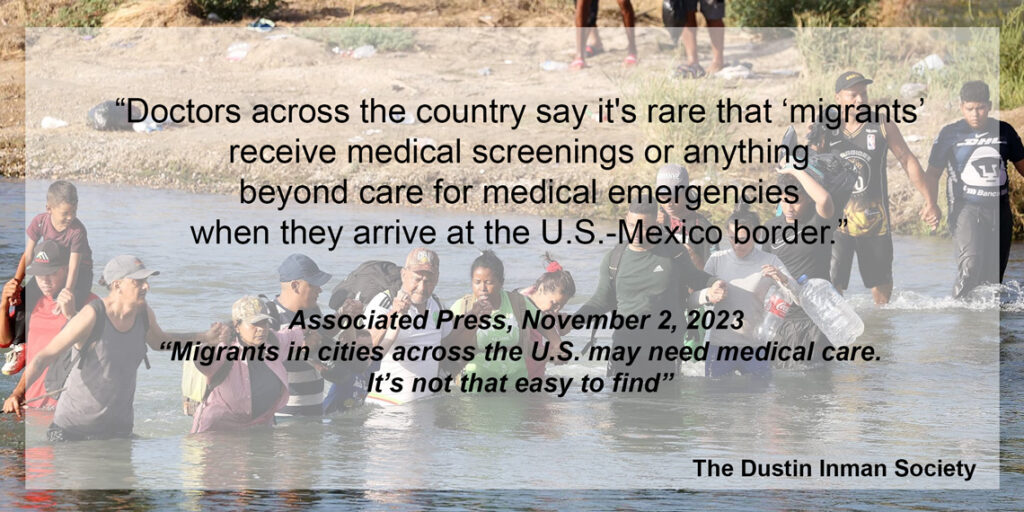

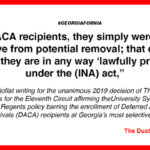









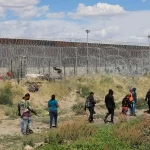











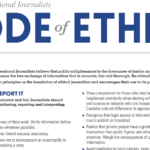





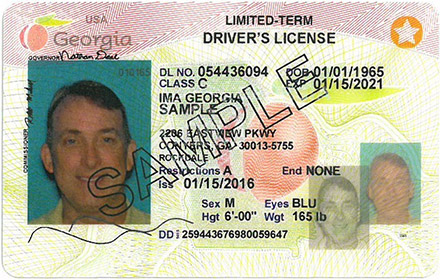




You must be logged in to post a comment.